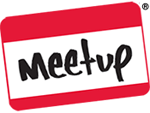
Thoughts and Tips on Running a Meetup Group

 Once upon a time before the Web, there were user groups: clubs focused on a particular technology or platform. Through monthly meetings and other events, users could interact with like-minded others for learning and socializing. With the growth of the Web, the popularity of user groups waned as it became easier to build communities and share knowledge online. Today, user groups still exist but more commonly exist in the form of less formal meetup groups.
Once upon a time before the Web, there were user groups: clubs focused on a particular technology or platform. Through monthly meetings and other events, users could interact with like-minded others for learning and socializing. With the growth of the Web, the popularity of user groups waned as it became easier to build communities and share knowledge online. Today, user groups still exist but more commonly exist in the form of less formal meetup groups.
I’ve had experience with various groups over the years and have enjoyed them as an excellent way to learn and network. I organized an engaging Ruby on Rails meetup group in Edmonton for a short time before I moved. My motivation was to meet others using it, learn from them, and perhaps network for a job. From that experience, I learned how relatively easy to organize people together when there is a common topic of interest. Later when I moved to Vancouver, I helped organize the first Vancouver Facebook Developer Garage, which ballooned into a huge event with the popularity of the platform at the time. If there is a subject area you think is under-served in your area, I encourage you to start a group, and offer these tips for doing so:
Web Presence: At a minimum, set up a mailing list. Keep up conversation on the list between meetings. Google Groups works well, as does Meetup.com though they charge a fee. A website makes it easier for people to find your group, and a Facebook group makes it easier to invite folks to events. Don’t go overboard, especially for small groups; too many communications mediums can dilute the conversation.
Location: Finding a suitable location can be tricky, given that a meetup usually has no budget. Coffee shops work well for small informal groups, but limit your ability to scale or have presentations. Offices after hours are great (tell your boss that supporting meetups is free advertising and brings community recognition.) Students may have access to school facilities after hours. Using someone’s home is uncommon, but can work if the space is suitable. The presence of a projector is a key element to consider.
Content: General practice is to have someone give a presentation of 30-45 min. After a few meetups, willing presenters can be hard to find, so keep it flexible and low pressure. An evening could perhaps feature two short presentations instead. A case study of a project you’re working on can make a good presentation; even if you don’t think of your work as interesting, it can be compelling to hear _how_ you work. In lieu of presentations, start discussion: recent developments in the area of interest, problems you’ve encountered, novel solutions, personal experiences, or anything that will send the room off on a thread.
Meetups are made of people, so treasure and tap people as the greatest resource. In a world where we all spend too much time behind screens and keyboards, people yearn for contact and community with like-minded people. The medium to light duties of meetup organizing can pay off well in community stature, knowledge learned, employment solicitations, and good times.











